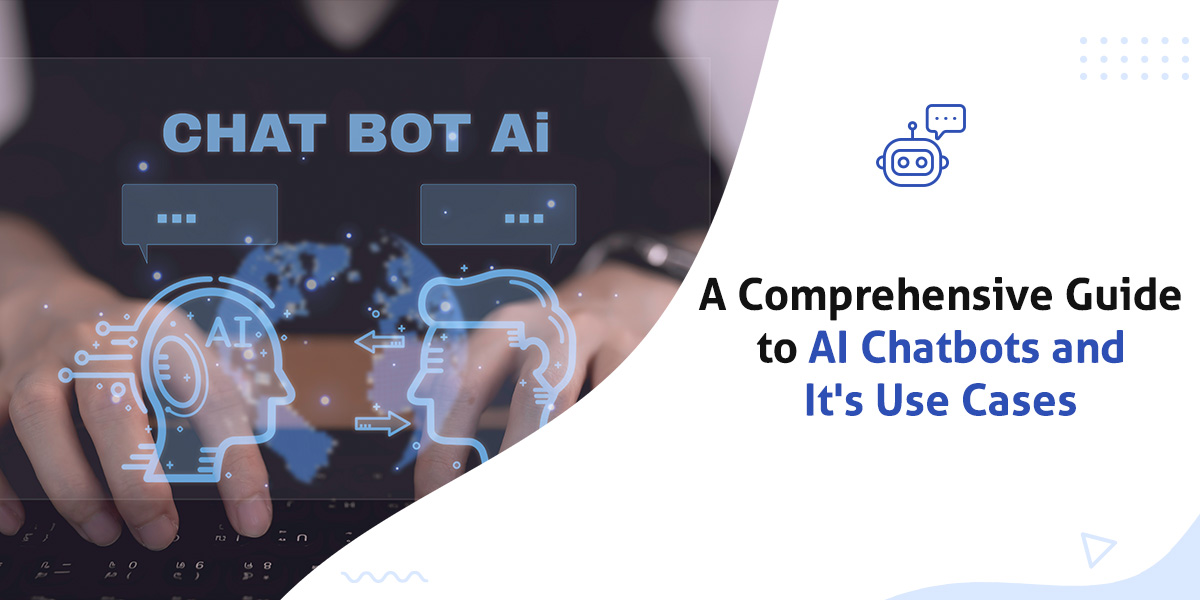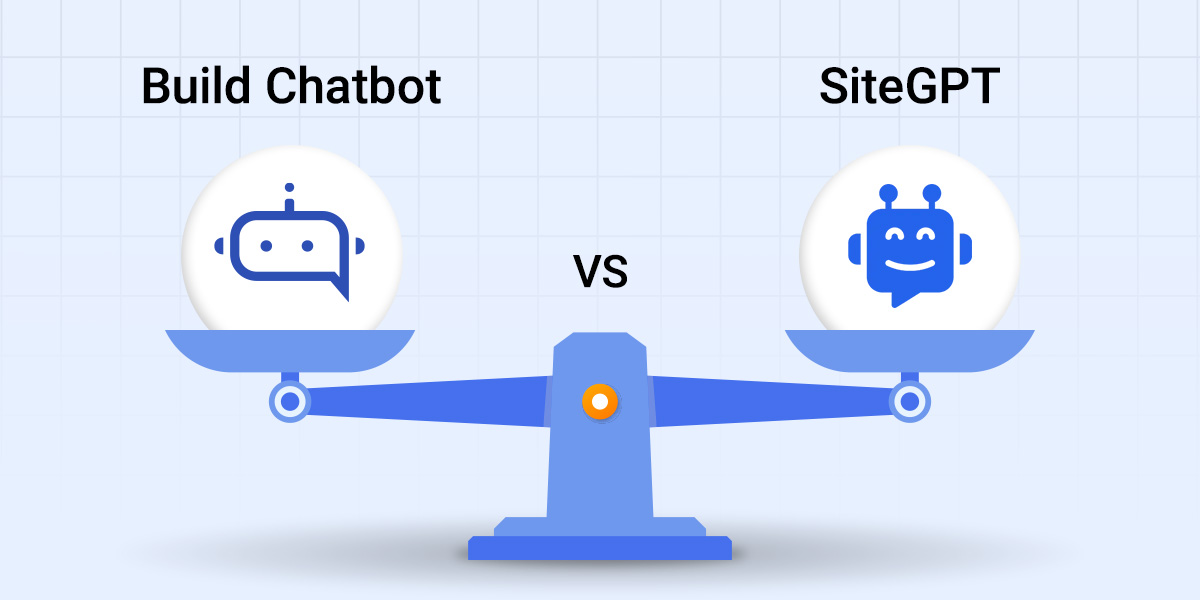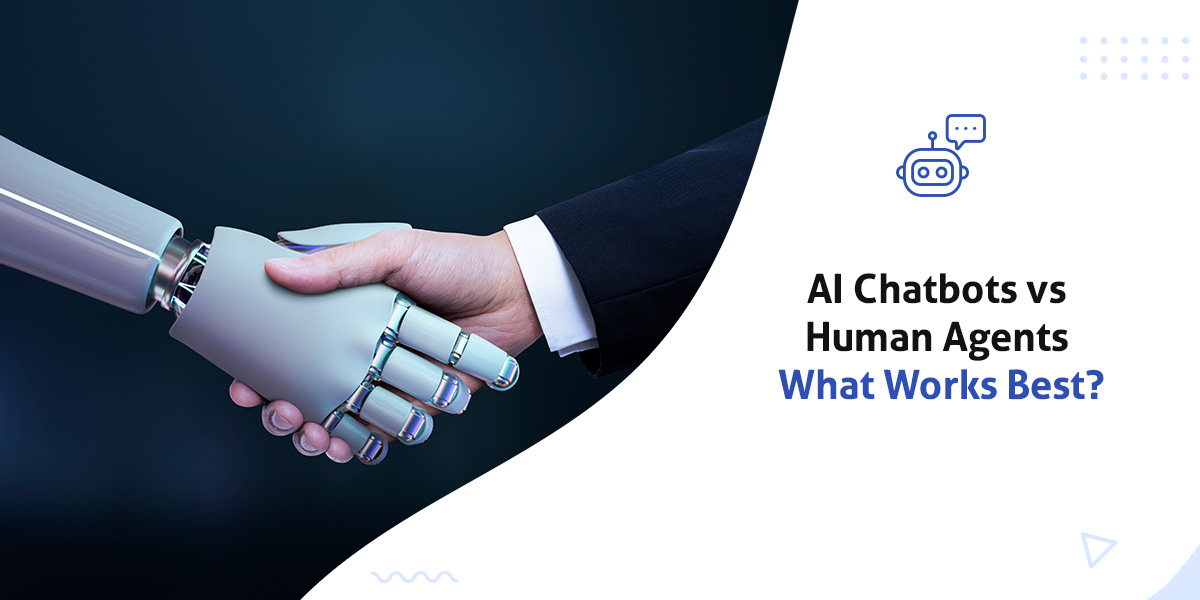In an era dominated by technological marvels, one innovation has stood out as a transformative force in the way we communicate and conduct business – the AI chatbot. These intelligent virtual assistants, powered by artificial intelligence (AI), are reshaping the landscape of customer interaction and automation.
Imagine a 24/7 receptionist who never gets tired, a customer service agent who answers every query instantly, or a personal assistant who remembers your every preference. This isn’t the stuff of futuristic sci-fi movies anymore; it’s the reality of AI chatbots.
But what exactly are AI chatbots, and how are they impacting our lives? In this comprehensive guide, we’ll demystify these virtual companions and explore their capabilities, applications, and future possibilities.
What is an AI Chatbot?
An AI chatbot, or Artificial Intelligence chatbot, is a computer program that simulates human-like conversation. These bots leverage advanced algorithms to interpret user input, understand intent, and generate appropriate responses through text or voice interactions. Acting as virtual assistants, AI chatbots can provide information, answer questions, and perform tasks based on programmed knowledge or machine learning capabilities. Their goal is to enhance user experience by delivering efficient and contextually relevant interactions, making them valuable tools for customer support, information retrieval, and various other applications.
How do Chatbots Work?
Chatbots operate through a combination of Natural Language Processing (NLP) and machine learning. Natural Language Processing enables them to understand and interpret user input, allowing for the extraction of intent and context from text or speech. Machine learning algorithms empower chatbots to improve their responses by learning from data, adapting to user interactions over time. This iterative process involves analyzing user queries, identifying patterns, and generating contextually relevant responses, resulting in an increasingly sophisticated and effective conversational experience.
The Future of AI Chatbots
The future of AI chatbots is marked by exciting developments that promise to elevate their capabilities and impact. Some key trends include:
Enhanced Personalization: Future chatbots are expected to offer more personalized interactions, tailoring responses to individual preferences and user behavior.
Integration with Emerging Technologies: Chatbots will likely integrate with emerging technologies like augmented reality (AR) and virtual reality (VR), providing users with immersive and engaging experiences.
Improved Emotional Intelligence: Advancements in AI will enable chatbots to better understand and respond to human emotions, fostering more empathetic interactions.
Increased Multimodal Capabilities: Chatbots will evolve beyond text and voice, incorporating visuals and other sensory inputs for a richer communication experience.
Benefits of Using Chatbots
The adoption of AI chatbots comes with a myriad of benefits for businesses and users alike:
24/7 Availability
Chatbots offer 24/7 availability, providing continuous assistance to enhance customer support and accessibility. This round-the-clock service ensures that users can receive help or information at any time, improving overall customer experience and satisfaction.
Efficiency and Automation
Chatbots enhance efficiency and automation by streamlining processes, automating repetitive tasks, and reducing response times. These capabilities contribute to overall operational efficiency, allowing businesses to handle tasks more swiftly and allocate human resources to more complex activities.
Cost Savings
Businesses achieve cost savings by deploying chatbots for tasks that would typically demand human resources. Chatbots automate processes, reducing the need for extensive human involvement and enabling cost-effective operations. This cost-saving aspect is a compelling reason for businesses to integrate chatbots into various functions.
Improved Customer Experience
Chatbots enhance customer experience by promptly addressing queries and delivering relevant information. This contributes to a seamless and personalized interaction, fostering customer satisfaction. The ability to provide quick and pertinent assistance makes chatbots valuable tools for creating positive and engaging experiences for users.
Types of Chatbots
There are several types of chatbots, each serving specific purposes. The main categories include:
Rule-based Chatbots
Rule-based chatbots operate within predefined rules and keywords, offering straightforward responses based on programmed instructions. These bots follow a set structure and provide answers based on recognized patterns, making them efficient for specific tasks. However, their limitation lies in the lack of flexibility, as they may struggle with handling more complex or unanticipated queries that fall outside their programmed rules. Despite their simplicity, rule-based chatbots are suitable for scenarios where a clear set of instructions can fulfill user needs.
Retrieval-based Chatbots
Retrieval-based chatbots leverage extensive databases to identify the best-matching response for user queries, offering enhanced flexibility in generating relevant answers. These chatbots rely on pre-existing data to understand user intent and provide contextually appropriate responses. By referencing a broad set of information, retrieval-based chatbots can handle a variety of inquiries with greater adaptability compared to rule-based counterparts. This flexibility makes them suitable for applications where responses need to be context-aware and dynamically tailored to user inputs.
Generative Chatbots
Generative chatbots represent the most advanced type, utilizing Natural Language Processing (NLP) and machine learning to generate unique responses. Unlike rule-based or retrieval-based counterparts, generative chatbots can adapt to context and user preferences dynamically. By understanding language nuances and patterns, they generate responses that are not pre-programmed, enabling more sophisticated and natural interactions. This level of adaptability makes generative chatbots ideal for handling complex conversations and providing personalized experiences in various applications.
AI Chatbots Use Cases
AI chatbots find applications across diverse industries, revolutionizing various aspects of business and everyday life. Some notable use cases include:
Customer Service
Chatbots play a crucial role by handling inquiries, delivering product information, and providing support. Their ability to respond promptly and efficiently to user queries enhances overall customer satisfaction. Chatbots contribute to a seamless customer experience by addressing common questions, troubleshooting issues, and offering information, allowing businesses to provide 24/7 support and improve their customer service capabilities. This automation in customer service not only boosts efficiency but also ensures consistent and reliable assistance for users.
Marketing and Sales
Chatbots prove invaluable for engaging potential customers, qualifying leads, and personalizing marketing efforts. These bots interact with users, answering queries, and guiding them through the sales funnel. By automating these processes, chatbots streamline customer interactions, providing instant responses and tailored information. This not only enhances customer engagement but also contributes to more efficient lead qualification and improved conversion rates. Chatbots serve as valuable tools in marketing and sales strategies, optimizing outreach and fostering meaningful interactions with prospects.
Education and Training
Chatbots function as virtual tutors, offering support by answering student queries and delivering personalized learning experiences. These bots provide assistance with coursework, explain concepts, and adapt their interactions to cater to individual student needs. By offering real-time feedback and guidance, chatbots contribute to a more interactive and accessible learning environment. Their ability to address a variety of questions and provide instant assistance makes them valuable tools for students seeking additional help and reinforcement in their educational pursuits.
Healthcare
Chatbots play a crucial role by assisting with appointment scheduling, offering basic medical information, and providing mental health support. They streamline administrative tasks, offer quick access to information, and contribute to patient well-being. Chatbots in healthcare enhance accessibility and provide valuable support, especially in scenarios where instant assistance and information are crucial for patient care.
Personal Productivity
Chatbots excel at managing calendars, setting reminders, and controlling smart home devices, streamlining daily routines. These bots enhance efficiency by automating tasks, allowing users to organize schedules seamlessly and control their surroundings effortlessly. Chatbots contribute to a more organized and productive lifestyle by simplifying routine activities through intuitive interactions.
Conclusion
AI chatbots represent a transformative force in the digital era, offering a wide array of benefits and applications. As we look towards the future, the continued evolution of chatbot technology holds the promise of even more sophisticated and personalized interactions. Their ability to decode queries, engage in intuitive conversations, and redefine the way we interact online signifies a transformative power that’s hard to ignore. As we stand at the crossroads of innovation, it’s clear that AI Chatbots are here to stay, promising a dynamic shift in the dynamics of communication. By understanding their workings, potential, and diverse applications, businesses and individuals can harness the power of AI chatbots to streamline processes, enhance customer experiences, and pave the way for a more efficient and connected future.
Ready to unlock the power of AI chatbots? Explore Build Chatbot and create your Custom AI Chatbot now!
Want to learn more about AI chatbots?
Still wanting to learn more about AI chatbots and also the best platforms to create your own? Head to our blog post, 14 of the Best AI Chatbot for 2023 to get even more inside information on conversational AI!




